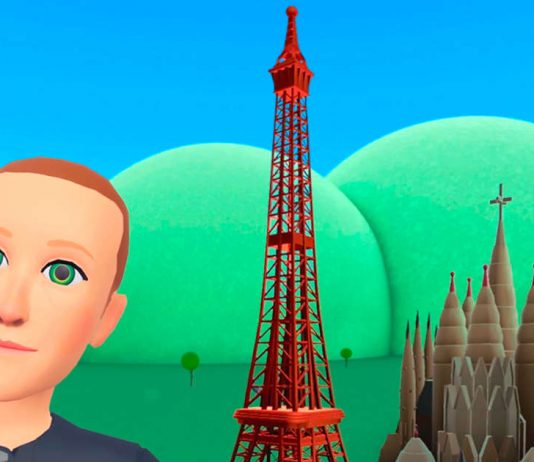The Facebook group declared a year ago that it would change its name to Meta to reflect the company’s engagement in the so-called metaverse — the potential future web development in which the internet and virtual reality mingle to become something new. The founder Mark Zuckerberg changed the name and weakened the Facebook brand, making it less and less attractive to younger users.
The switch to the metaverse wasn’t simply for show. Over the past year, Meta invested nearly $10 billion in developing technologies related to virtual reality and creating software and virtual environments. An economic effort gave a very difficult period for the company, losing nearly 60% of its value compared to the peak of September 2021.
The decline of Facebook and Instagram users, particularly to the benefit of TikTok, is one of the causes of the crisis, but so is Apple’s decision to allow iPhone users to stop tracking their behaviour for every application, which allowed Facebook, like many other companies, to personalize advertisements better. This substantially damaged the financial models of Facebook and Instagram, leaving a $10 billion void in ad income.
A few days before Meta’s first anniversary, The Verge published an article on the state of Horizon Worlds, in which the company’s metaverse manager, Vishal Shah, complains that the people who even work there do not use the platform.
Meta’s Metaverse only has 200,000 users. The Facebook group originally set itself the goal of getting half a million monthly active users excited about Horizon Worlds by the end of the year.
The idea of the metaverse remains mysterious to many, despite being relatively basic. It is, in reality, a software that recreates a virtual environment in which users may move and do tasks linked to business and leisure while wearing a particular viewer on their heads. Because the platforms that provide them differ, engaging with friends, co-workers, and strangers is possible via an avatar in the metaverses.
Last week the New York Times released a summary of a dozen anonymous interviews with Meta employees, as well as a series of articles, revealing how this change to the metaverse has generated a lot of stress.
The timeframe chosen by Zuckerberg, opting for significant expenditures in the short term, even though the technology required for spreading the metaverse is still in an experimental stage, is among the most common grounds for discomfort and disagreement. According to some estimations, it will still take years of development and investment to create a technology that can be deployed widely.
On October 11th, Meta held its annual business conference, Connect 2022, during which it presented the latest news related to the metaverse, a new virtual reality headset, Quest Pro — the pricing is much more than that of the previous model.
In addition to internal disagreements and economic losses this year, Zuckerberg’s breakthrough does not seem to have done the group’s image any good. In August, to publicize the arrival of Horizon Worlds in France and Spain, Meta decided to post a selfie of Zuckerberg in a poorly detailed and uninspiring virtual environment, inspiring a sarcastic meme that lasted for a few days. What was striking at the time was, above all, the poor definition of Zuckerberg’s face, very different from the promotional videos made by Meta in the last year, where it appeared to be possible to work, play, and play sports in a well-defined virtual environment.
One of the most intriguing developments for the platform’s future is the planned cooperation with Microsoft, making extremely popular Microsoft products such as Teams, Office 365, and Azure available for virtual reality.
Well, good things take time. Let’s wait and see.
